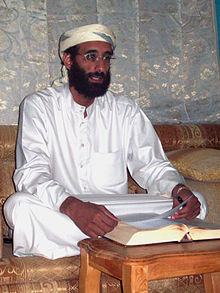On January 12, UK Granted Exception to Rule of Specialty in Minh Quang Pham Case
Back in September, I argued that the case of Minh Quang Pham should be considered a precedent of sorts for Julian Assange. Pham is a Vietnamese refugee to the UK who was stripped of his UK citizenship and extradited to the US in 2015 on charges relating to AQAP. When he was originally extradited, most of what he was charged with was serving as a graphic designer for AQAP’s Inspire magazine, which was charged as material support for terrorism. He was also charged with terrorist training while wielding a firearm. That is, like the charges Assange faces, Pham was extradited for publication activities that the US deemed to threaten US national security.
Pham is held in Florence SuperMax, one of the prisons that Assange might be detained in if he were extradited and convicted.
After Pham tried to get his sentence lowered under the US v Davis precedent on his firearm charge, the government moved to vacate his plea deal and supersede his indictment to include a terrorist attack on Heathrow they claim Pham agreed to carry out with Anwar Awlaki. The charge relies on the testimony of Ahmed Warsame, whose cooperation with the US has allowed him to avoid prosecution for his very significant leadership role in al-Shabab. But to supersede Pham’s indictment, the government first had to ask the UK for an exception to the Rule of Specialty.
It seemed likely the UK would grant it — such things normally happen between the US and UK, and this was a case where the UK was happy to pawn off Pham to the US for its far more draconian prosecution. But the tensions around Anne Sacoolas and the high profile of the Assange extradition made the question more interesting.
It turns out, at least on terrorism cases, the UK and US remain happy to subject former UK citizens to the harshest aspects of US’ legal system.
According to a status report filed today, the UK granted the exception on January 12, and Pham will soon be re-indicted in preparation for a trial at which — having little to lose given his current sentence at Florence — he will vigorously contest both what he said in interviews he gave while in transit and the evidence provided by Warsame.





Silver lining: That Pham was charged in US criminal court, sentenced to 40 years, and has clock starting on that 40 year sentence still puts justice for he and any of his victims well ahead of most of the Kafka-esque Guantanamo military tribunal cases.
While fully automatic Kalashnikov rifles are technically illegal in Afghanistan, it’s still probably worthwhile that Pham should argue his firearms case given Afghanistan’s lax firearms law enforcement for last 50 years, particularly nonuniform application of law through large parts of country and particularly under Taliban jurisdiction.
It’s an uphill battle, but applying US firearm criminal law to a British national engaging in certain acts in Afghanistan seems a bit circuitous; Britain or Afghanistan should probably better try him on the firearms violation.
Turns out the rule of specialty may be flexible.
I guess it did not register, but I wrote about Assange and the flexible rule of specialty nearly two years ago.
It registered! [You’re saying I should link??]
Tangentially, the Sacoolas case got even more complicated recently, now that there’s a civil action against her in the US. Her lawyer admitted in court that she was “employed by an intelligence agency” (clarified to mean the State Dept, which suggests INR) but wasn’t acknowledged as a spook by the embassy. That in turn puts strain on the UK-US agreement that waives employees’ rights to diplomatic immunity but grants it to their families.
(The presiding judge is T. S. Ellis, better known around these parts for his somewhat cantankerous overseeing of Manafort’s EDVA trial.)
I would hope neither governments gets bent out of shape over the Dunn’s civil case; they shouldn’t.
UK solved the big international relations problem through its own courts back in November when it determined Sacoolas had diplomatic immunity from criminal prosecution.
This latest determination that civil case can proceed was by our US government; US federal court.
It seems like everything is working as best it can on this one.
As an American, I sympathize with the Dunn family even if I don’t want my diplomats subjected to every country’s domestic laws where US diplomats might serve.
She wasn’t a diplomat though, was she? The UK Government determination was made on the basis of a US lie that she was there as a spouse only. That is a strain.
Unless I am mistaken, criminally, the UK has already ruled definitively on this. Let the civil case be what it shall be, and that is fine.
Wheels within wheels. It is vital to the current political stance of the UK that once you have been deprived of your citizenship the UK really does not care about you. This arises from the much more deserving case of Shamima Begum, born in the UK but who went to join ISIS when she was only a young and impressionable girl of fifteen. The UK shamefully took away her British citizenship arguing she was entitled to Bangladeshi citizenship, which Bangladesh said she clearly wasn’t. My Government not about to the seen to take any responsibility for a rather less deserving Pham.